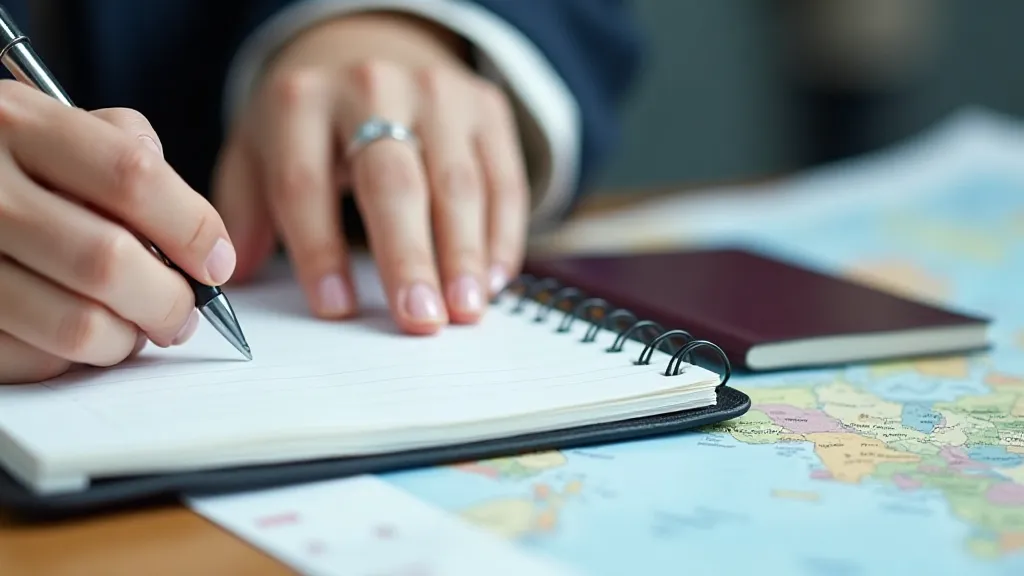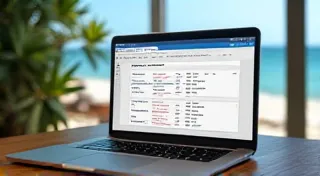Budgeting for Digital Nomads: Mastering Your Finances on the Road
Traveling the world while working remotely is a dream for many, but it requires more than just a laptop and an internet connection. Careful financial planning is absolutely crucial. As a digital nomad, your income can be unpredictable, and your expenses can fluctuate wildly depending on your location. This article will equip you with practical strategies to manage your finances effectively, ensuring your nomadic lifestyle is both enjoyable and sustainable.
1. Track Your Expenses Meticulously
The first step to mastering your digital nomad budget is understanding where your money is going. Don’t just guess; track everything. Use a budgeting app (YNAB, Mint, or even a simple spreadsheet) to record your spending. Categorize your expenses – accommodation, food, transportation, entertainment, healthcare, co-working spaces, visa costs – to identify areas where you can potentially cut back.

2. Destination Selection: Balancing Cost and Experience
Your location dramatically impacts your budget. Southeast Asia, Eastern Europe, and parts of Latin America are generally more affordable than Western Europe or North America. Research the cost of living (COL) in potential destinations before you commit. Sites like Numbeo and Expatistan provide valuable COL comparisons.
Consider these factors beyond just the base cost of living:
- Visa Costs: Some countries require frequent visa renewals, adding a significant expense.
- Transportation: Internal travel costs within a region can add up quickly.
- Activities: Consider the cost of activities you enjoy, whether it's scuba diving in Thailand or skiing in Austria.
3. Mastering Currency Fluctuations
As a digital nomad, you're likely dealing with multiple currencies. Currency exchange rates can fluctuate, impacting your budget.
- Be Aware: Monitor exchange rates and understand how they affect your purchasing power.
- Consider Exchange Services: Look for services that offer competitive exchange rates and low fees (Revolut, Wise are popular options).
- Local Bank Accounts: In some locations, opening a local bank account can be beneficial, although there are often associated fees and requirements.
4. Taxes: A Remote Worker’s Responsibility
Navigating taxes as a digital nomad can be complex. You'll likely have tax obligations in your country of origin, and potentially in the countries where you're residing. Consult with a tax professional who specializes in international taxation for personalized advice. Some important considerations:
- Residency: Determine your tax residency status.
- Income Reporting: Understand what income you need to report and how.
- Tax Treaties: Explore any applicable tax treaties between your country of origin and your destination countries.
5. Building an Emergency Fund: Your Safety Net
Unexpected costs are inevitable. A flat tire, a medical emergency, or a sudden change in income – having an emergency fund can provide a vital safety net. Aim to save at least 3-6 months’ worth of living expenses in a readily accessible account. This fund should be separate from your day-to-day travel budget.

6. Negotiating and Finding Deals
Embrace the art of negotiation! Whether it's haggling for accommodation or finding discounts on tours, being proactive can save you money. Also consider these tips:
- Long-Term Accommodation: Negotiate lower rates for monthly rentals.
- Local Experiences: Seek out local experiences instead of tourist traps.
- Free Activities: Take advantage of free activities like hiking, exploring local markets, or visiting museums on free admission days.
7. Review and Adjust Regularly
Your budget isn't a static document. Regularly review your spending, compare it to your planned budget, and make adjustments as needed. Life as a digital nomad is unpredictable – your budget should be too.

Conclusion
Budgeting for digital nomads requires discipline, awareness, and adaptability. By implementing these strategies, you can take control of your finances, maximize your experiences, and truly enjoy the freedom and adventure of the nomadic lifestyle.





